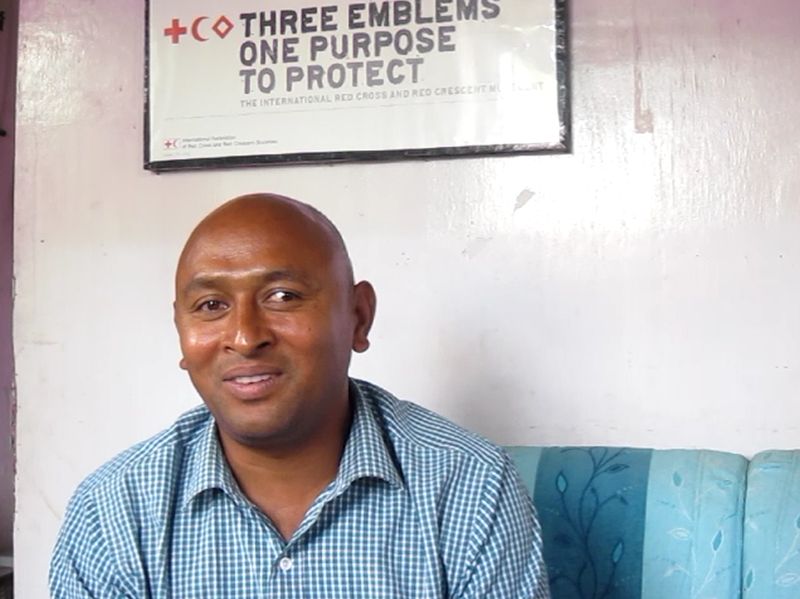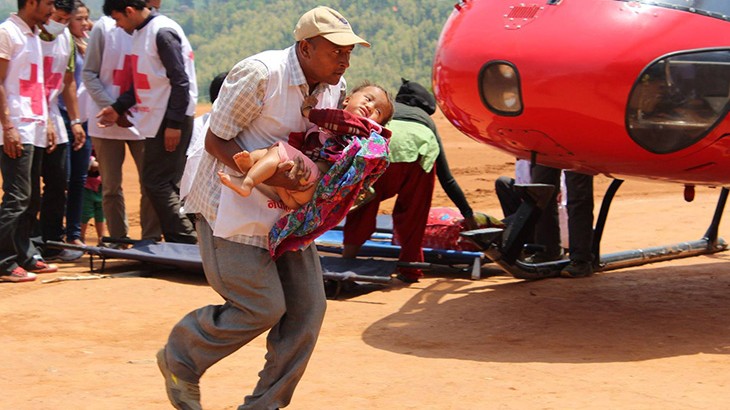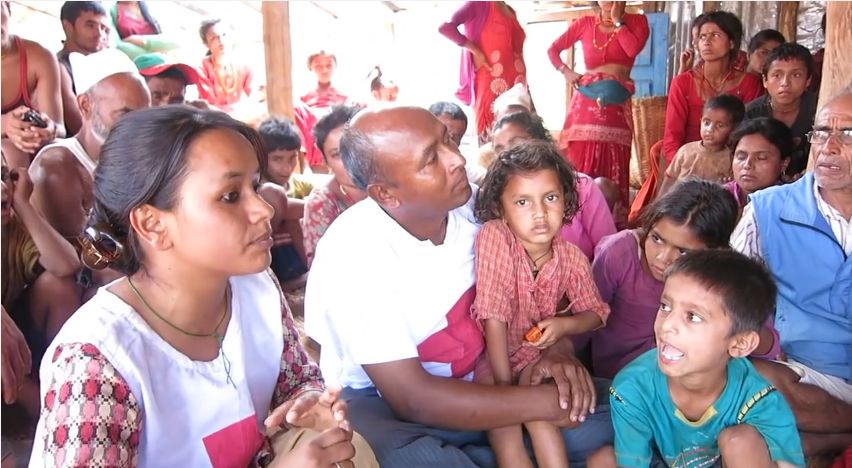Nepal’s ‘Ambulance Uncle’ believes that the people of his country have a treasure – “even in the midst of the tragedy last year, I have seen people smile.” The memory of the devastating earthquake exactly one year ago, which claimed nearly 9000 lives, is fresh in his mind.
Narayan Kumar Shreshta – who has been a volunteer with the Nepal Red Cross Society for over a decade – alone saved more than 115 lives. He carried relief material and ferried children to safety in areas where ambulances couldn’t access. That is how he got the special name. The first-aid and disaster management trainings Narayan had undergone earlier helped him in the rescue work and he was able to tend to children, the elderly, pregnant women and ensure their safety. His past experience of volunteering in rescue operations during the floods and fire incidents also stood him in good stead.
But the intensity and the scale of the earthquake was beyond Narayan’s imagination. “We were not prepared. Once it occurred, we realised we did not have the resources – the manpower, skills and capacity. It was massive and the number of volunteers was not sufficient to cater to those affected.”
In Narayan’s Dhading district, the Red Cross volunteers rescued as many as 675 people. “I sometimes wonder what if there had been many more trained volunteers like me – ten, fifty or hundred? We could have perhaps been able to save thousands more people.”
He strongly feels that in order to work towards better preparedness, more junior Red Cross volunteers should be enrolled and trained. “I am growing old as are many other trained volunteers. We need to nurture a new breed of junior Red Cross volunteers. They are the ones who will make a difference if such a calamity were to occur again.”
Carrying out rescue and relief is not easy when there are such vast numbers affected in front of you. “It breaks your heart when you have to decide who you can help first. How do you take a call on that? When I look back, I am always reminded of a little boy who was in his mother’s arms as they were trapped. The situation was precarious and no one was willing to pull them out. By the time I managed to reach them, they had succumbed.”
Narayan says rescue efforts are most effective when people themselves get involved. “We then tried to utilize the bystanders. We slowly got them to lend a hand in removing the rubble and once they got on with it others were motivated to join in the efforts. That way we could move forward faster.”
‘Ambulance Uncle’ affirms that the safety of Red Cross volunteers during emergencies must also be carefully considered. “May be it’s time to also think of some kind of insurance for Red Cross volunteers so their families are secure even if something happens to them.”
Recalling the second big quake that struck on May 12, 2015, he says, “It happened during a psycho-social support session. The people were still trying to deal with the aftermath of the first. Most people thought it was the end of everything. But soon after the ground stopped shaking, everyone regrouped and continued the session. The experience-sharing made a huge difference and the community came out of it much stronger.”
“It was the first time I myself experienced the effect of psycho-social help”, says Narayan. He underlines the crucial role played by psycho-social help sessions conducted with the ICRC’s support. “It helped the community to overcome the trauma. I have come to realise that it is very important to address the psycho-social needs of people, along with fulfilling a person’s basic food and shelter requirement. One kind of support is incomplete in the absence of the other.”
Read more:




